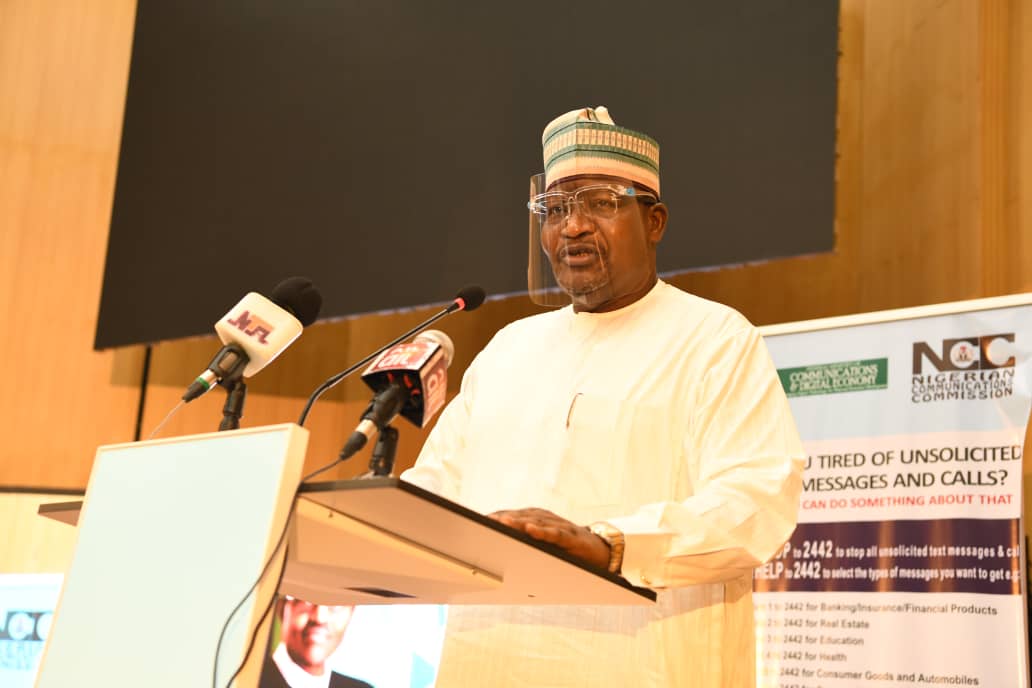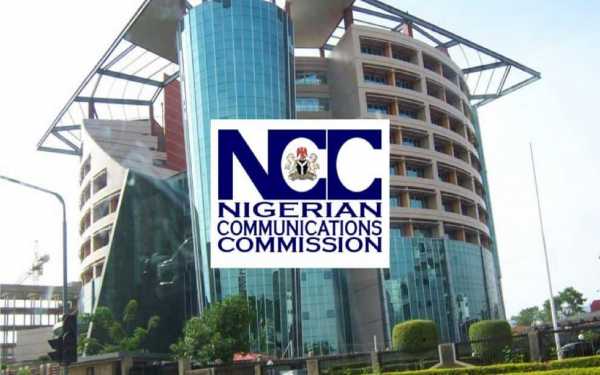In this part of the 2020 review on the activities of the Nigerian Communications Commission (NCC), it is important to note that the Commission developed a Consultation on Mobile Virtual Network Operator (MVNO) Licensing Framework, essentially to bring another segment industry players, who will rely on existing operators’ network to offer services to Nigerians in the rural, remote, unserved and underserved areas of the country.
The MVNO framework is another initiative by the Commission to improve access and connectivity and it is based on NCC’s determination to introduce MVNOs’ services within the telecommunications market of the country. In pursuit of this, the Commission wishes to obtain comments from industry stakeholders and the general public on key considerations, which will be used to formulate a sustainable and efficient MVNO licensing framework, as well as a highly conducive regulatory regime that facilitates growth and development in the telecoms space, through competitive and differentiated services offered by these virtual operators.
Already, the document has been uploaded on the Commission’s website on December 10 and inputs from stakeholders on the MVNO document is expected to be obtained from members of the public within 21 days of the upload of the document on the Commission’s website. According to Executive Vice Chairman of NCC, upon closure of this period, the Commission will engage in deliberation sessions in an expedited manner to finalize its decisions about MVNO introduction in the market. A consultation report will then be generated and published to the public to create awareness of the Commissions decisions.
The Commission further noted that the consultation paper is in line with processes stipulated in the consultation guidelines put forward by the Commission in 2007. The Commission expected all comments received to be considered before making a final decision, although the commission may decline to use or consider anonymous responses. Comments and responses submitted are deemed independent from its respondent’s relationship with the Commission.
Sensitisation on Procedure for Lodging Consumer Complaints
The Commission leveraged its social media platforms and other legacy media to sensitise consumers of telecom services who are dissatisfied with services rendered to them by any of the Service Providers on the procedures for lodging their complaints to the Commission. They were continuously sensitised on their right to seek redress of any service-related issue by reporting to NCC after they would have reported to their respective service providers and are still not satisfied with the responses.
Continuous consultation on planned 5G technology deployment Following the misinformation, miscommunication, misunderstanding and misconception that greeted the trial of 5G by the NCC in 2019, the Commission in 2020 began a deliberate regulatory measure by developing a Draft Consultation Document on the Deployment of Fifth Generation (5G) Mobile Technology in Nigeria. The document defines the implementation plan for the deployment of 5G in Nigeria. It provides a background into the benefits of 5G technology and outlines the Commission’s plans and strategies for a successful implementation of 5G in Nigeria and clearly presents guidelines for the relevant areas of the technology and the expectations of the Commission from the operators. This Plan takes into account the expectations of all the stakeholders in the communications industry in Nigeria. Nigeria undertook 5G trials in selected locations within the country in collaboration with an Operator in 2019. The trial, among others, was to study and observe any health or security challenges the 5G network might present and the Executive Vice Chairman of NCC, Prof. Umar Danbatta, has clearly stated that “For the avoidance of doubt, as with the previous technologies such as 1G, 2G, 3G and 4G, the Commission will not commence 5G deployment without due consultation with all relevant stakeholders.”
Sanitising the industry of SIM-related crimes
The Commission is currently working with mobile network operators (MNOs) with other agencies such as the National Identity Management Commission (NIMC) in line with Federal Government’s Directive, through the Minister of Communications and Digital Economy, Dr. Isa Ali Ibrahim Pantami, for telecoms subscribers to link their National Identification Number (NINs) with the SIM database with a view to addressing SIM-related crimes. In the year under review, spirited regulatory efforts were made by the Commission to remove improperly-registered SIMs from the networks and a number of arrest and convictions of fraudulently-registered SIM registration by ‘operators agents’ were also made to serve as deterrent to others who may be engaging in improperly-registered SIM cards, which is a criminal offence in the country and a threat to national security. The Commission also sensitized the consumers on this menace and encouraged them to stop the sale, purchase and use of pre-registered SIM cards as it constitutes a punishable offence under the law.
According to NCC, the use of pre-registered SIM cards gives cover for unwholesome activities like kidnapping, call masking, threat to lives, bullying, armed robbery, identity theft financial crimes and SIM swap fraud, among others. Closely related to this was the massive cybercrime sensitization that the Commission embarked on since the beginning of the year, culminating in a more widespread social media campaign in the month of October, with greater emphasis by the Commission on child online protection, considering the fact that most children now take Internet-based learning and educational instructions as a result of the COVID-19 pandemic and its attendant restrictions and the need to protect them online was taken as a priority for the Commission, as the regulator of the industry.
Counting benefits of MNOs listing on the Nigerian Stock Exchange. The Commission, in the course of the year, highlighted the huge benefits which its regulatory action of facilitating the listing of MTN Nigeria and other operators such as Airtelin the country’s stock exchange market in terms of economic gains to Nigeria and Nigerians, especially in the areas of boosting market capitalisation and yielding dividends to shareholders.
Market analysts report that MTN investors, alone, have raked in approximately N1 trillion in price appreciation and dividends since April 2020. The listing of MTN was as a result of NCC’s effective regulatory action taken during the mobile network operator’s fine settlement agreement in 2016, which compelled the telco to, among other things, list on the Nigerian Stock Exchange (NSE). The listing was one of the outcomes of the NCC’s stringent regulatory posture, which served as tonic for other telcos such as Airtel to follow the same direction.
Continuing with spectrum trading initiative to boost connectivity The Commission this year lifted the suspension on the Spectrum Trading Guidelines (STG), 2018, pending the conclusion of the ongoing review of the Guidelines. The lifting of the suspension followed deliberations on the subject by the Board of NCC at its Special Board Meeting, which held on Wednesday, September 16, 2020. The Meeting was preceded by the suspension of the STG by the Board at its 96th Board Meeting held in May 18, 2020. “The Board was satisfied that, given the state of the consultation, it was possible to lift the suspension of the STG pending the conclusion of the review,” NCC said in a public notice in October, 2020.
The Commission had, in a statement issued on May 27, 2020, announced the suspension of STG 2018 for the Nigerian telecommunications industry and informed all licensed telecoms operators, prospective investors, industry stakeholders and the general public of the regulatory decision. The Board of NCC had earlier taken the decision for Spectrum Trading in response to telecommunications global dynamics, as well as the efforts to optimally utilise and maximise the benefits of Spectrum as a scarce resource. Spectrum is a limited resource, which, when inefficiently utilised, greatly limits broadband coverage and speed. The current Spectrum Trading Guidelines were developed in 2018 after industry-wide consultations and this instrument allows that the Spectrum resource be traded on the Secondary Market through Transfer, Sharing or Leasing (TSL) upon satisfying stipulated regulatory conditions.
According to the Commission, the Nigerian National Broadband Plan (NNBP), 2020-2025 launched by President Muhammadu Buhari in Abuja in March 2020, requires that these Guidelines be reviewed to ensure that unutilised Spectrum is fairly traded to facilitate rollout by other operators amongst others. The Guidelines will also help to address the need for ubiquitous broadband deployment to accelerate penetration and access in line with the economic Agenda of the Federal Government.









